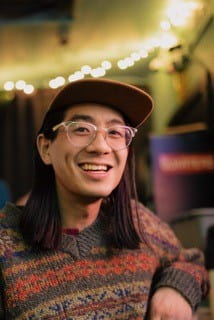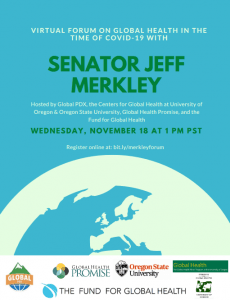This is a list of courses compiled by program staff for Fall 2023 course offerings that will fulfill your undergraduate Global Health Minor requirements.
Please consult the official Class Schedule for the most current information concerning the term’s courses as course information and offerings may have changed since the publishing of this list.
Please make note of the following tips:
- Keep an eye on Pre-Requisites. This list does not include which courses have pre-requisites. Make sure you are checking that you meet all of the pre-requisites before you register for a course. If you don’t meet the course pre-requisites but would like to take the course, you may contact the course instructor to request enrollment approval. If approved, a staff member for that program may open enrollment for you.
- Keep an eye on Enrollment Requirements. This list includes courses offered by other departments/programs at the UO. Each department/program at the UO may have their own requirements for enrolling in courses. For instance, some may require that you be a major in that department/program. Similar to pre-requisites, before enrolling in a course, please verify that you meet the enrollment requirements.
- Read Titles for “Topics” courses. All courses with the numbers 196, 199, 399, 407, 507, 410 and 510 are changing topics or experimental courses. You are able to take courses with these numbers multiple times (or at the same time!), but this means you also need to keep an eye out for which course title fulfills your requirement/elective.
*Courses with an asterisk may not be pre-coded into Degree Guide as Elective; may require advisor adjustment. Course topic and title varies. Course number and course title must match to satisfy requirement.
Required Courses
| Dept | Number | Title | Credits | CRN |
| GLBL | 340 | Global Health & Development | 4.00 cr. | 12180 |
Social Science/Humanities Elective Courses
| Dept | Number | Title | Credits | CRN |
| GEOG | 181 | Our Digital Earth | 4.00 cr. | 12059 |
| GEOG | 341 | Population and Environment | 4.00 cr. | 12070 |
| GEOG | 481 | GIScience I* | 4.00 cr. | 12084 |
| GLBL | 340 | Global Health & Devel | 4.00 cr. | 12180 |
| GLBL | 415 | Global Story of Race | 4.00 cr. | 12189 |
| PHIL | 335 | Medical Ethics | 4.00 cr. | 15321 |
| PPPM | 370 | Global Sustainable Development Policy | 4.00 cr. | 14345 |
| PPPM | 407* | Seminar: Public Health | 4.00 cr. | 14353 |
| SOC | 311 | Research Methods | 4.00 cr. | 14689, 14690 |
| SOC | 311 | Research Methods | 4.00 cr. | 14689, 14690 |
| SOC | 311 | Research Methods | 4.00 cr. | 14689, 14690 |
| SOC | 312 | Statistical Analysis in Sociology | 4.00 cr. | 14691 |
| SOC | 385 | Medical Sociology | 4.00 cr. | 14699 |
| WGS | 221 | Bodies and Power | 4.00 cr. | 15114 |
Natural Science Elective Courses
| Dept | Number | Title | Credits | CRN |
| ANTH | 175 | Evolutionary Medicine | 4.00 cr. | 10150 |
| ANTH | 220 | Introduction to Nutritional Anthropology | 4.00 cr. | 15547 |
| BI | 121 | Introduction to Human Physiology | 4.00 cr. | 10635 |
| BI | 353 | Sensory Physiology | 4.00 cr. | 10713 |
| BI | 360 | Neurobiology | 4.00 cr. | 10720 |
| BI | 423 | Human Molecular Genetics | 4.00 cr. | 15873 |
| ENG | 240 | Introduction to Disability Studies | 15910 | |
| ENVS | 202 | Introduction to Environmental Studies: Natural Sciences | 4.00 cr. | 11775 |
| HPHY | 105 | Principles of Nutrition | 4.00 cr. | 12373 |
| HPHY | 211 | Medical Terminology | 3.00 cr. | 12374 |
| HPHY | 212 | Scientific Investigation in Physiology | 4.00 cr. | 12375 |
| HPHY | 422 | Physiology of Obesity | 4.00 cr. | 16207 |
| PSY | 301 | Scientific Thinking in Psychology | 4.00 cr. | 14488, 14489 |
| PSY | 301 | Scientific Thinking in Psychology | 4.00 cr. | 14488, 14489 |
| PSY | 302 | Statistical Methods in Psychology | 4.00 cr. | 14490, 14497 |
| PSY | 302 | Statistical Methods in Psychology | 4.00 cr. | 14490, 14497 |
| PSY | 303 | Research Methods in Psychology | 4.00 cr. | 14504, 14505, 14506, 14507, 14508, 14509, 14510, 14511 |
| PSY | 303 | Research Methods in Psychology | 4.00 cr. | 14504, 14505, 14506, 14507, 14508, 14509, 14510, 14511 |
| PSY | 309 | Psychopathology | 4.00 cr. | 14519, 16165 |
 Mitchell Yep is a UO alumni who majored in International Studies and got a minor in Global Health. Mitchell answered a few questions about their current pursuits and some of the lessons they took away from the Global Health program.
Mitchell Yep is a UO alumni who majored in International Studies and got a minor in Global Health. Mitchell answered a few questions about their current pursuits and some of the lessons they took away from the Global Health program.